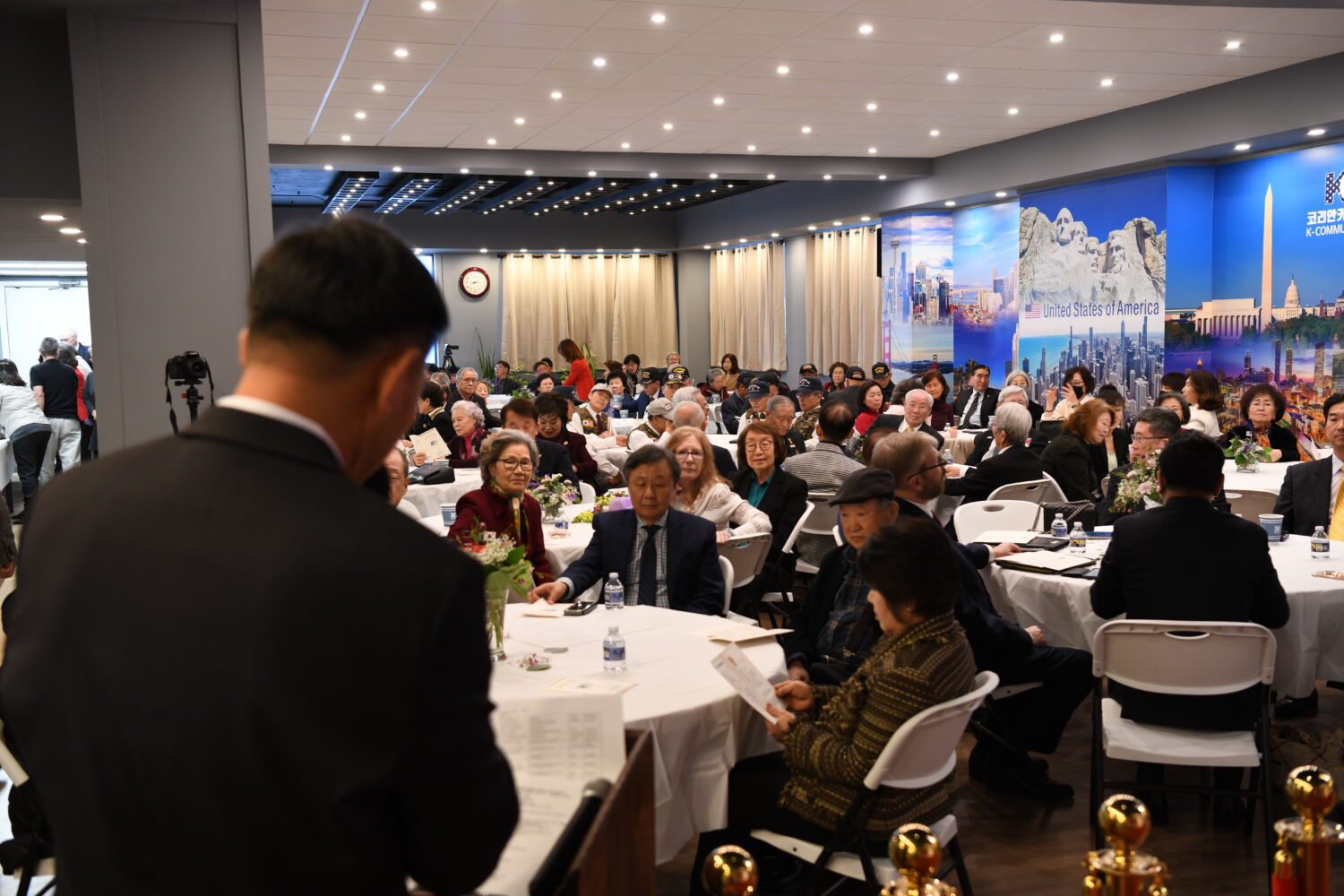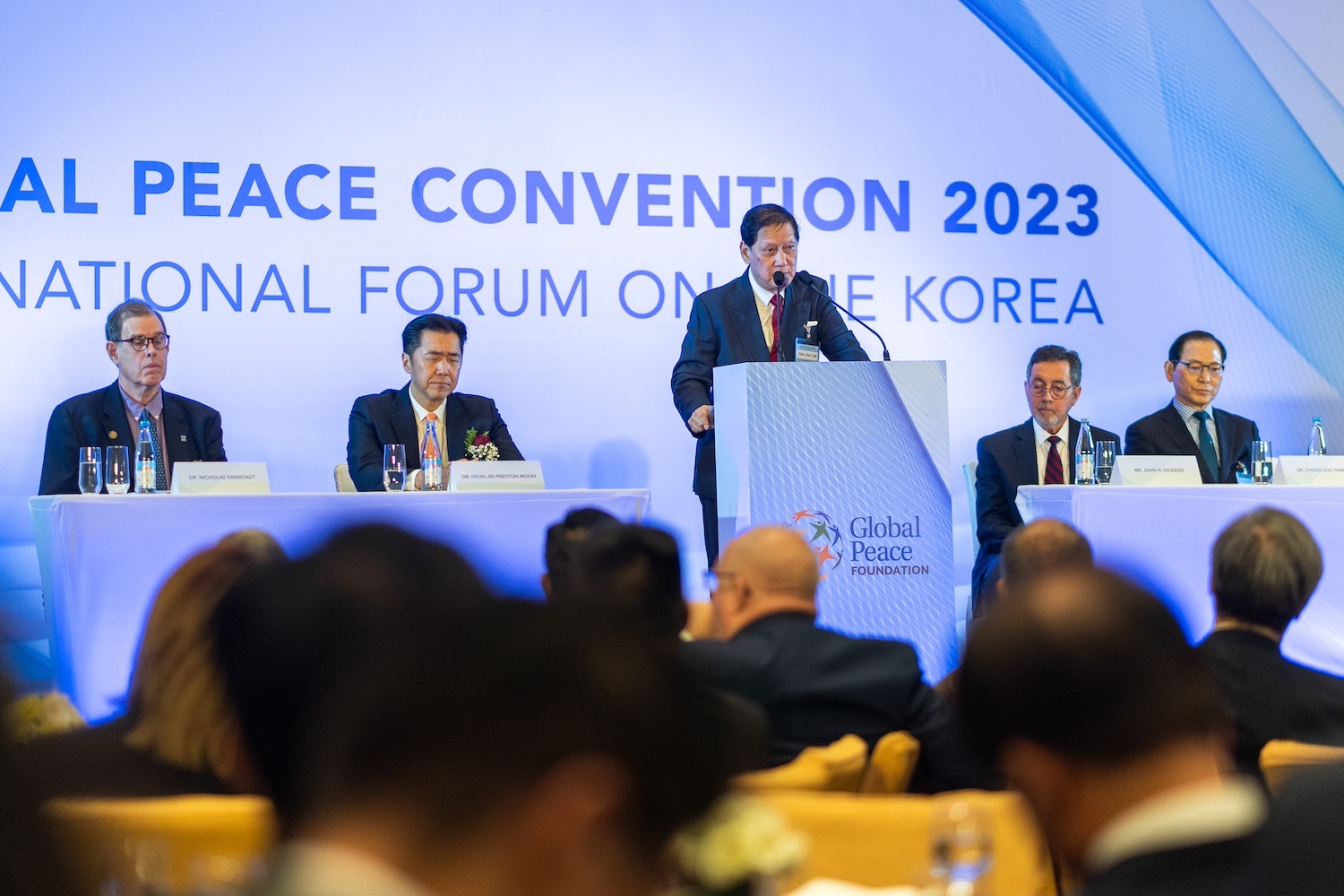Book Launch by GPF Chairman Calls on Koreans to Recall National Heritage as Basis of Reunification
Representatives from throughout Korea, and Asia specialists from the United States, China and Japan, gathered in Seoul on September 29, 2014 to further approaches to the reunification of the Korean peninsula at the Global Peace Leadership Conference, “Vision, Principles and Values for a Reunified Korea.”
Government leaders from across the political spectrum, as well as professors, university chancellors and diverse faith leaders, assembled for an opening ceremony marking the formal launch of The Korean Dream: A Vision for a Unified Korea, a just completed book by Global Peace Foundation (GPF) founder and Chairman Dr. Hyun Jin P. Moon.
Since its founding in 2008, the Global Peace Foundation has convened numerous international conferences on the division of Korea and prospects for reunification, as well as supported diverse civil society initiatives to bridge divisions and raise public awareness of approaches and implications of a reunified Korea.
“I believe in the destiny, in the identity of Korea, and that this is the time tremendous transformation can come on this peninsula, if only the Korean people have a dream that could spark their sense of identity and destiny.”
In welcoming remarks, Chairman of the Committee for Democratization of North Korea Hong Soon-kyung said that the objective of reunification is “the common prosperity of the Korean people and should not be achieved by a certain society’s ideological approach. Instead, it must be carried out by forming a government and political system through which everyone in the nation can enjoy freedom and happiness.” He added that after 30 years of Japanese colonial rule and 70 years of division, “our people have lived in pain more than one century. It is time to end such suffering.”
Also presenting welcoming remarks, the Chairman of the National Assembly’s Special Committee for the Development of Inter-Korea Relations, Exchange and Cooperation, Won Hye-young, noted that South Korean President Park Geun-hye called reunification a “bonanza” and launched the Presidential Preparatory Committee for Unification, which aroused public interest on reunification more than ever.
He said as the chairman of the Special Committee for the Development of inter-Korea Relations, “I will put forth all my effort to make the National Assembly expand inter-Korean exchanges, make a breakthrough in the development of inter-Korean relations and lay the groundwork for a united Korea.”
In his address to the conference, the GPF Chairman recalled than in numerous meetings with different leaders in Korea, the elder generation empathized with his concern and passion for the issue of reunification, but younger leaders were advising him that one was interested in the issue of reunification.
“Every time I heard someone trying to discourage me from pursuing this issue of the peaceful reunification of Korea peninsula, there was a burning desire inside,” Dr. Moon said. “I believe in the destiny, in the identity of Korea. I believe that we have a special role to play, and that this is the time tremendous transformation can come on this peninsula, if only the Korean people have a dream that could spark their sense of identity and destiny.”
Looking at all the scholarly work on reunification, Dr. Moon found that the focus was only on the process within the context or framework of the Cold War paradigm, which he found ironic. “The Koreans were debating on a paradigm that was imposed on the Korean people, in the circumstance after Korea’s liberation in 1945.
“The history of a modern Korea of two Koreas is only a fraction within the span of the 5000-year history of our people, of our history; it is just a drop in the bucket in terms of our identity. I realized in talking about Korean reunification, political leaders and academics were not tapping into that rich wealth of common identity, history and culture that could be the basis of unity for the Korean people, North and South, and in the diaspora community. That became the genesis behind this book, The Korean Dream.”
The Global Peace Leadership Conference continues on September 30 and will examine Korean reunification as an engine of economic growth; the role of civil society, including women and the media; and the role of interfaith partnerships in advancing the process of reunification.



